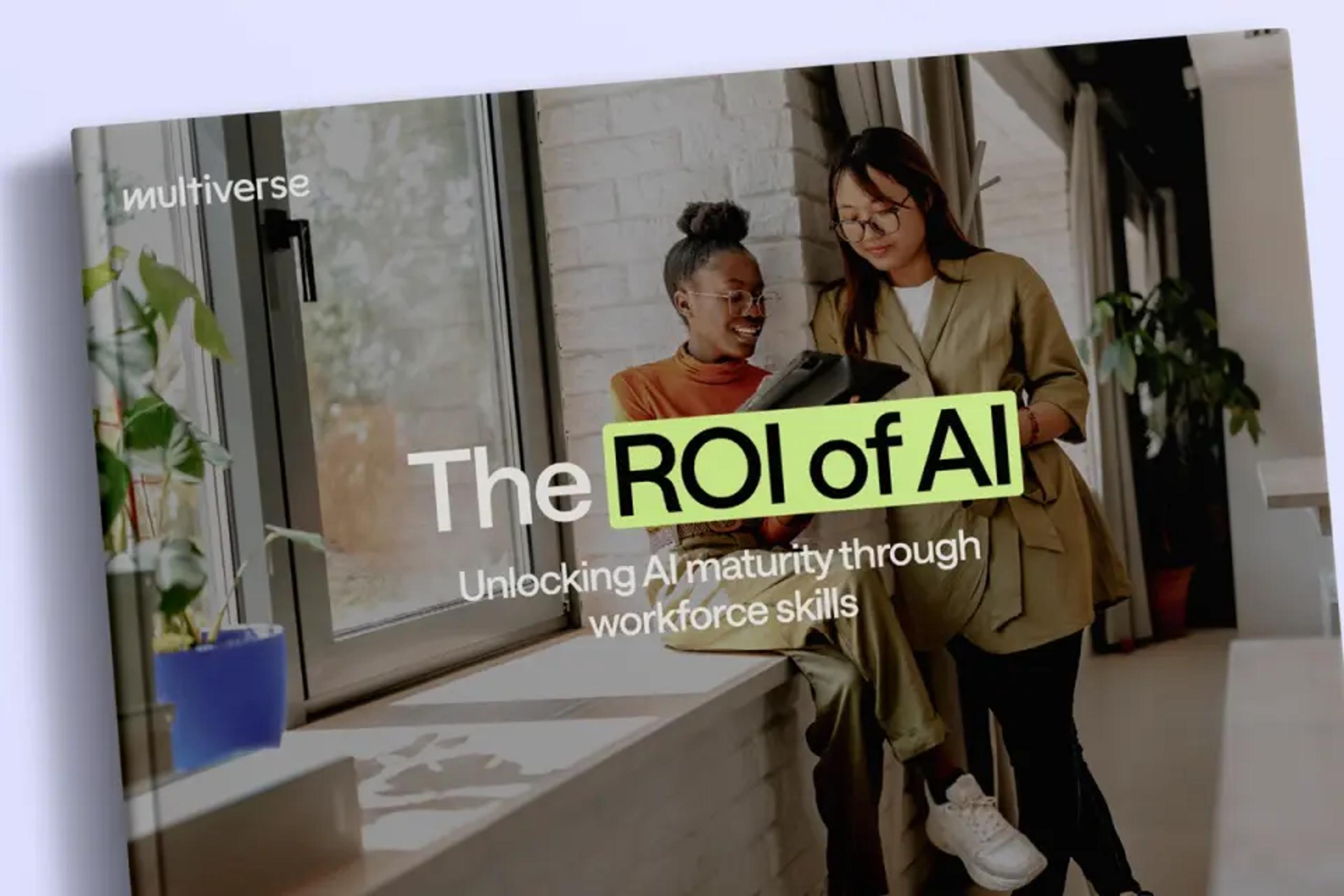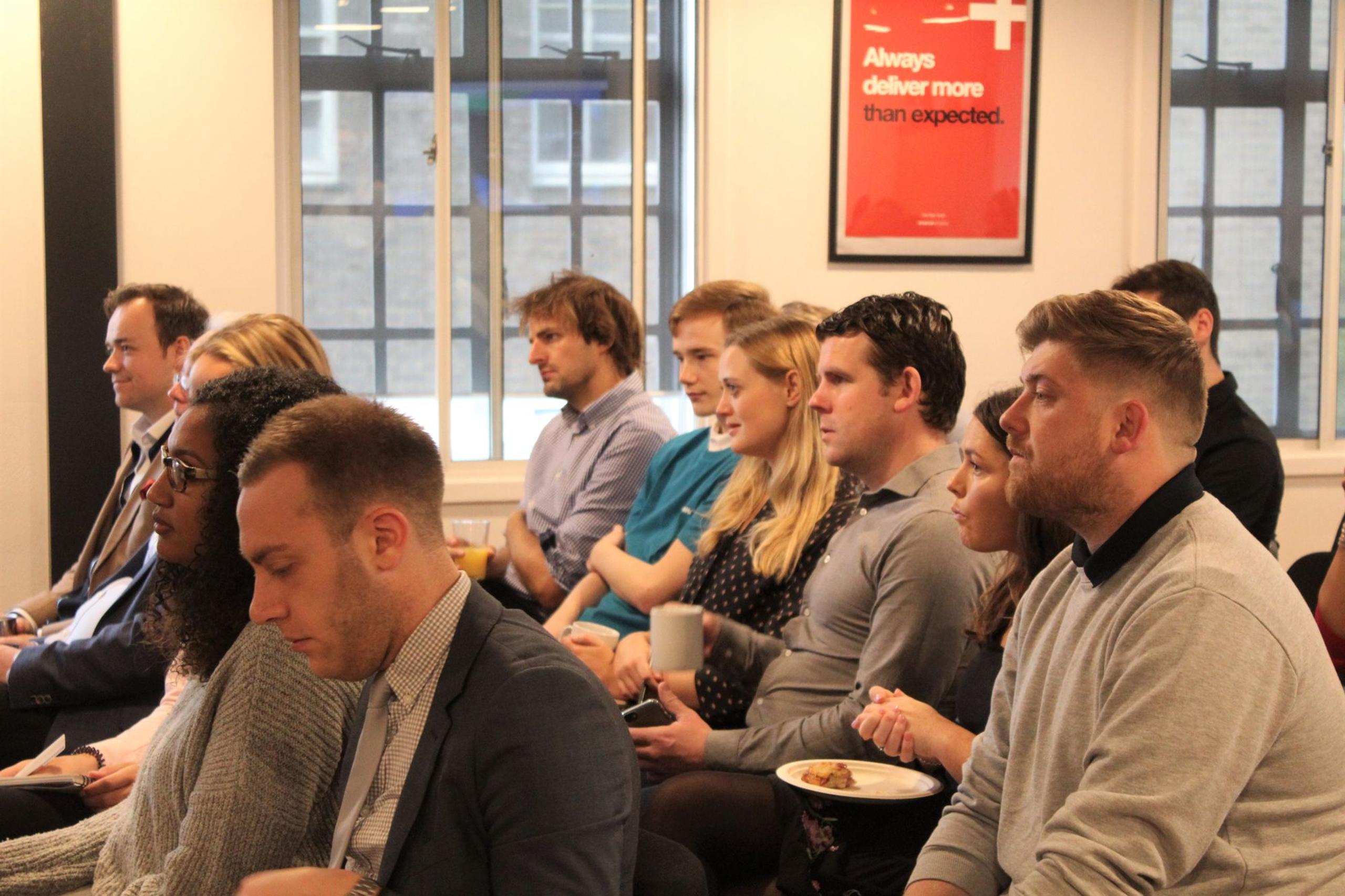On Thursday 3rd October, Multiverse & Goal 17(opens new window) co-hosted a breakfast event to discuss how the world of work is changing and what initiatives companies can implement to increase levels of engagement and improve staff retention. The room was packed with professionals from various industries, seeking advice on how to initiate a culture change in their organisation and implement a valuable learning and mentoring strategy.
Joined by over 30 HR, Talent and management representatives from companies including Barclays, Arcadis and Slaughter and May, the atmosphere in the room was effervescent, therefore breakfast and networking started without delay.
All were excited to hear fromEuan Blair, Co-Founder and CEO at Multiverse & Fran Boorman, Co-Founder and CEO at Goal 17 on the societal and economical challenges the UK is currently facing when trying to hire and retain diverse talents and what companies can do to reverse the situation.
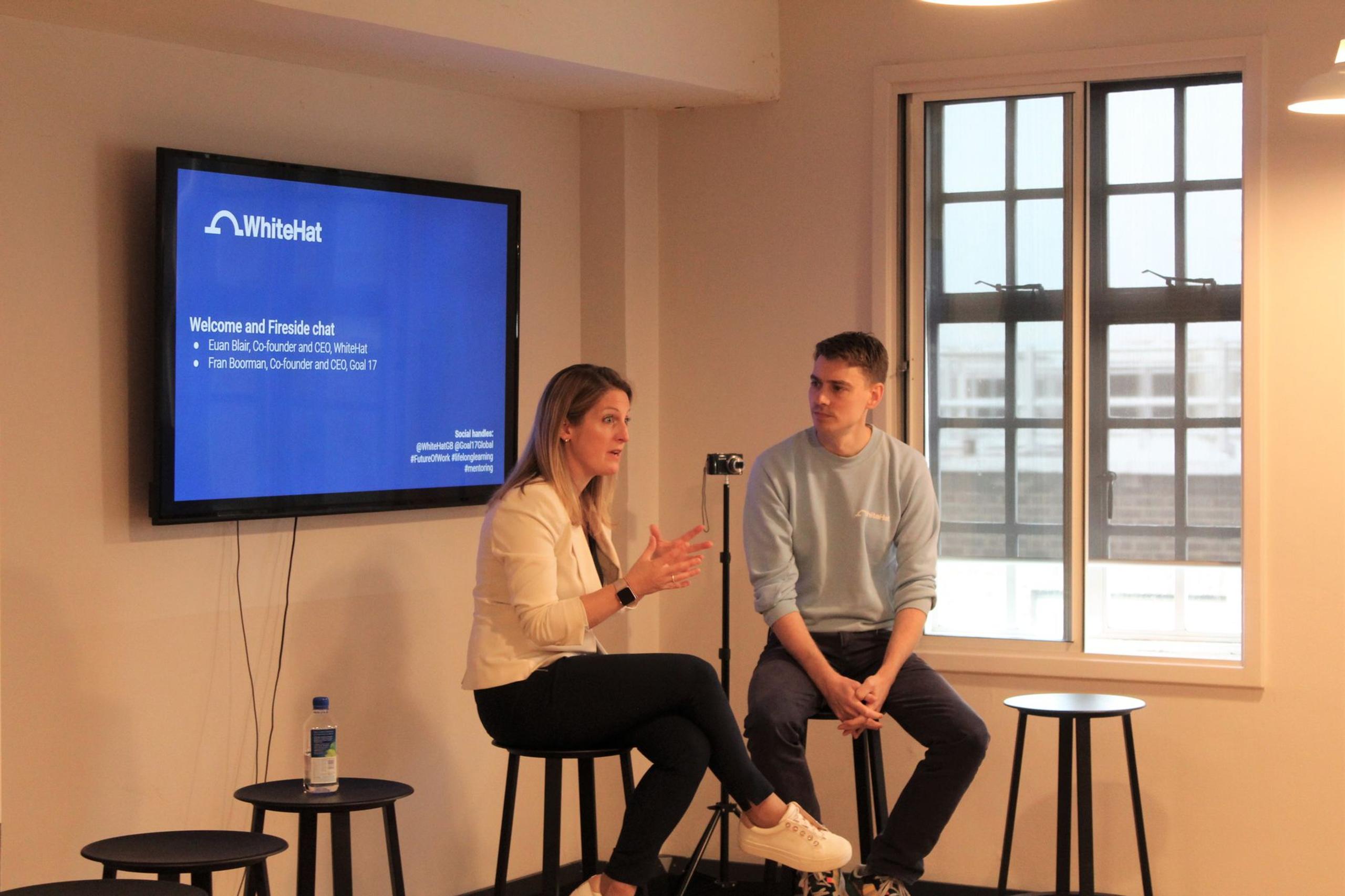
With the generation of baby boomers retiring and a new wave of generation Z talents expecting more diversity and fulfilment, both highlighted it was a critical time for employers to set in place new initiatives, in order to offer a new sense of purpose to their workforce and retain valuable employees.
With 870,000 unfilled roles in the UK, it is evident that companies are struggling to find the right candidates, and therefore need to invest in their workforce and create their own pipeline of talent to fill the skills shortage.
Fran Boorman wrapped up the session by stating that: “as the skills gap increases we need to find new ways to attract and retain the best talent. Multiverse and Goal 17 offer a unique and sustainable recruitment and retention model that engages and develops future leaders.”
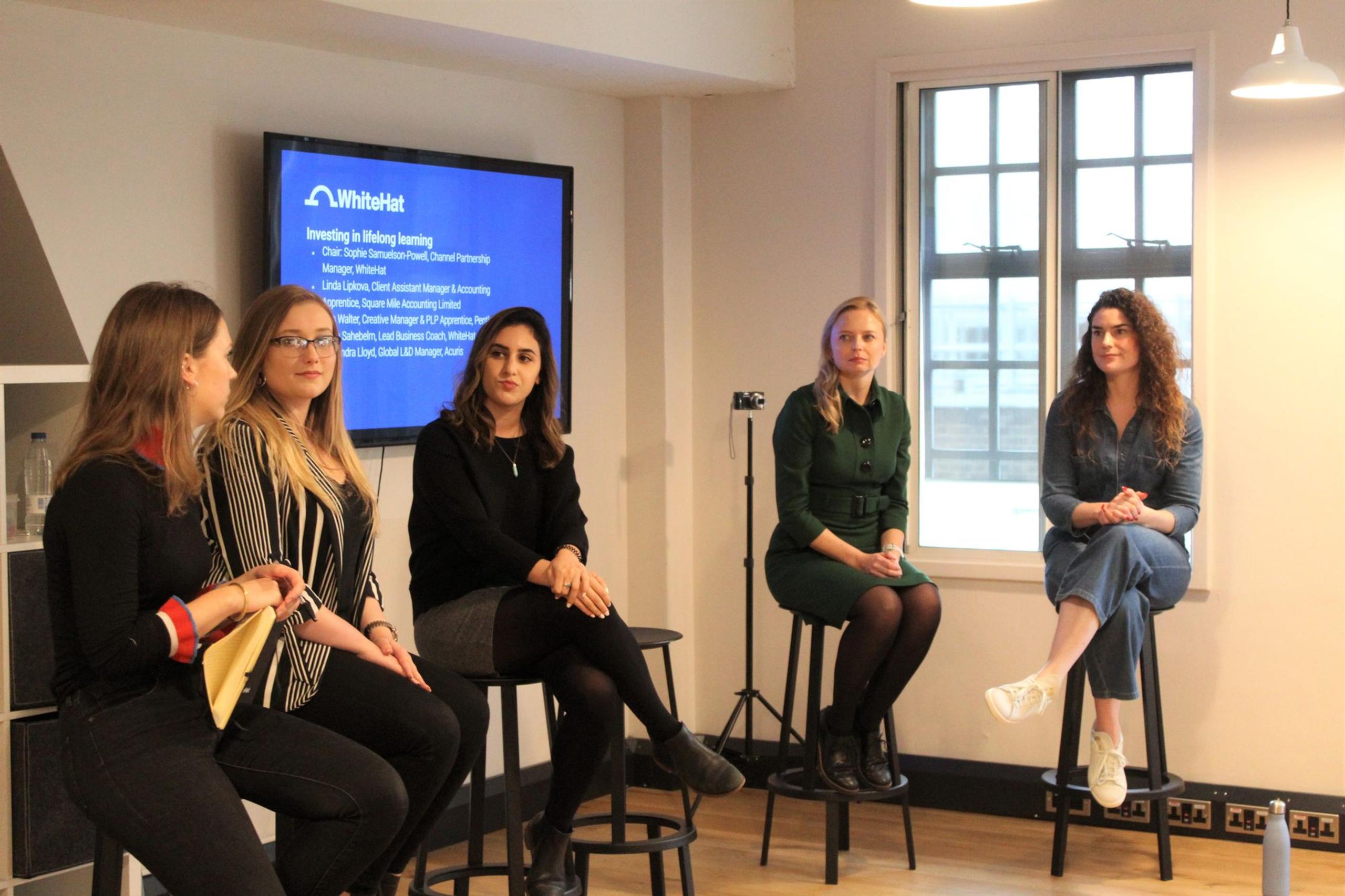
The first panel of the morning,‘Investing in Lifelong Learning', was chaired by Sophie Samuelson-Powell, Channel Partnership Manager, Multiverse and she was joined by Alexandra Lloyd, Global L&D Manager at Acuris and Neda Sahebelm, Lead Business Coach at Multiverse as well as two Multiverse apprentices, Linda Lipkova and Kim Walter.
Whilst Linda Lipkova, an accounting apprentice at Square Mile, chose to go down the apprenticeship route to start her career, Kim Walter, Creative Manager at Pentland and on Multiverse's people leadership programme, wanted a way to learn new skills that would give her career progression opportunities.
Something the panel all agreed on was that, whilst previously one bit of training would last your entire career, it certainly isn’t the case anymore.
Alexandra explained that learning is an essential requirement for employees to grow and develop in their role, and therefore businesses have to adapt and offer development opportunities.
The good news is, employees and businesses can both benefit from this type of initiative. By investing in an employee's personal and professional development, businesses can reduce turnover and boost productivity.
Unfortunately, not every company recognises the importance of learning and therefore doesn’t give the right encouragement. One of our panelists highlighted that companies driven by metrics don’t always enable their employees to put time aside to integrate learning part of their day-to-day workload.
As an apprentice, part of the qualification is 20% off-the-job training. Kim explained that at first she had found it difficult to manage but, as her understanding of what counted towards the 20% grew, she realised a lot of what she was doing already counted. Both Kim and Linda emphasised that the support of their line manager was crucial to making sure that they managed the 20% effectively.
Linda explained,” my manager is really involved in my progress, they want me to develop my skills [...] I wouldn’t have been able to stay in a company that didn’t have space for improvement.”
“Often, when the founders aren’t passionate about learning, the senior management is impacted, and that trickles down to the rest of the company,” added Neda. Neda explained how she had run a strengthsfinder exercise in one of her previous roles but enthusiasm from employees and internal stakeholders was lacking.
In a nutshell, it is important to get internal buy-in and to engage internal stakeholders in the process. Integrating learning in team objectives is a great way to empower employees to put time aside, to develop their skills and to feel good about it.
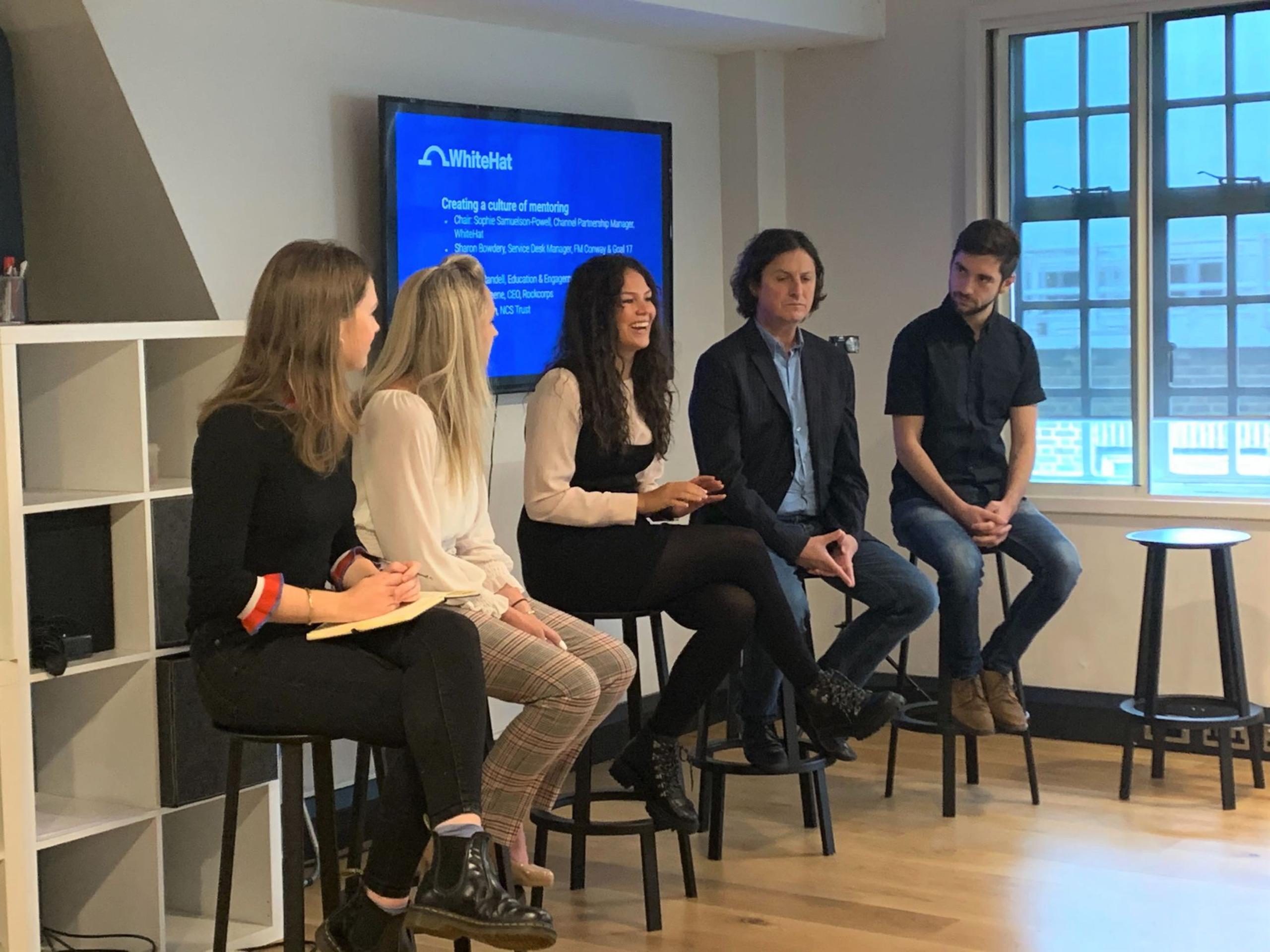
The second panel explored mentoring - what mentoring is and how to become involved in mentoring, as well as the genuine impact it can have on a mentor and mentee’s life. Sophie was joined by Sharon Bowdery, Mentor & IT Service Desk Manager at FM Conway, Stephen Greene, Mentee & CEO at Rockcorps, accompanied by his mentor, Joe Philipson, NCS Trust, and Siobhan Randell, Education & Engagement Manager at Multiverse.
Sharon had came across mentoring by first being a mentee. Since then, she had been mentoring employees from her team but also young homeless individuals through Goal 17’s mentoring programme and its charity partner Street Soccer Foundation.(opens new window)
With the help of Goal 17, she had been able to set up a structured mentoring scheme, help her team members to grow, and put time aside for her own development. She highlighted that mentoring had empowered her to build meaningful relationships with her team and people in general.
On the other hand, Siohban had started down the mentoring path by helping a young boy from Hackney for 3 years. A few years later, she became a mentee herself, after meeting someone at an event and asking him to be her mentor. Siobhan had wanted a role model that was from the same heritage, and from a similar socioeconomic background as herself, to help her develop herself. Conscious that there are a lot of young people who often don’t have someone that they can relate to within their organisation, Siobhan, along with a few of the Multiverse team, set up a BAME Network for Multiverse apprentices, empowering minorities to gather together and create an inclusive environment.
Joe and Stephen’s story was a little different as they were introduced through a reverse-mentoring scheme, matched based on character traits. Even though they were no longer part of the mentoring programme, they had kept in touch and built a trusted relationship. Joe had mentored young people from school in the past, but he felt particularly empowered by mentoring someone older and more experienced than him. Stephen had seen an opportunity to formalise a senior leadership programme, allowing senior management to be vulnerable, open and able to ask for help.
Joe added, "It's great that Multiverse are helping organisations to think more about the future of their workforce, and supporting young people to have prosperous careers. Especially in a world where the skills required for work are changing at an increasingly rapid rate. Reverse mentoring is a concept that can be challenging for both parties involved, but given a chance can provide some real benefits for all involved.
The panel explored how individuals can build a successful mentor/mentee relationship. “Building trust and getting to know each other is critical,” enthused Stephen. “If you don’t set up the relationship properly at the beginning, it can become a hierarchical relationship, and that’s not the goal.” It is also important that mentors get to know their mentee, and make themselves relatable; there is a mutual benefit to mentoring but only if you are both willing to engage and learn. The mentoring relationship should be a two-way exchange in order to benefit both parties. “Quality mentoring can really enhance a person's chances of success, becoming an inspiring mentor requires commitment, guidance and structure ” highlighted Sharon.
Another key element to ensuring success, it to communicate expectations - what the mentee expected to get out of the mentoring. Siohban explained she always prepares for her meetings with her mentor in advance, to ensure she makes the most of his time and gets exactly what she wants from her mentor.
The topics and format of the mentor/mentee catch-ups vary depending on the content of the session. For example, Siobhan usually seeks her mentor’s advice for important presentations, or to help her frame certain topics to senior management, so she would often have hour-long face-to-face sessions. For Stephen and Joe, they had structured meetings when they first started out but have now moved to a more case by case basis, seeking support and advice when needed.
Whether your company is involved in your mentoring relationship or not, having the support from your manager is also an essential component of a successful relationship. By being open with your line manager, and also making sure they can see the benefit you are getting out of it, you get the time to dedicate to
Whether you choose to use an official programme as a route to mentoring, or you do it more informally, make sure you are setting expectations and preparing for meetings to get the most out of it. Don’t waste it!
Sophie concluded, “It was brilliant to see how our panellists had taken responsibility for their own lifelong learning, and how in turn this has empowered them to support others in their personal development journeys, be it via apprenticeships, the creation of learning and development programmes, or mentoring opportunities. It just goes to show that if you want to create a culture of lifelong learning, you need to start with yourself.”
